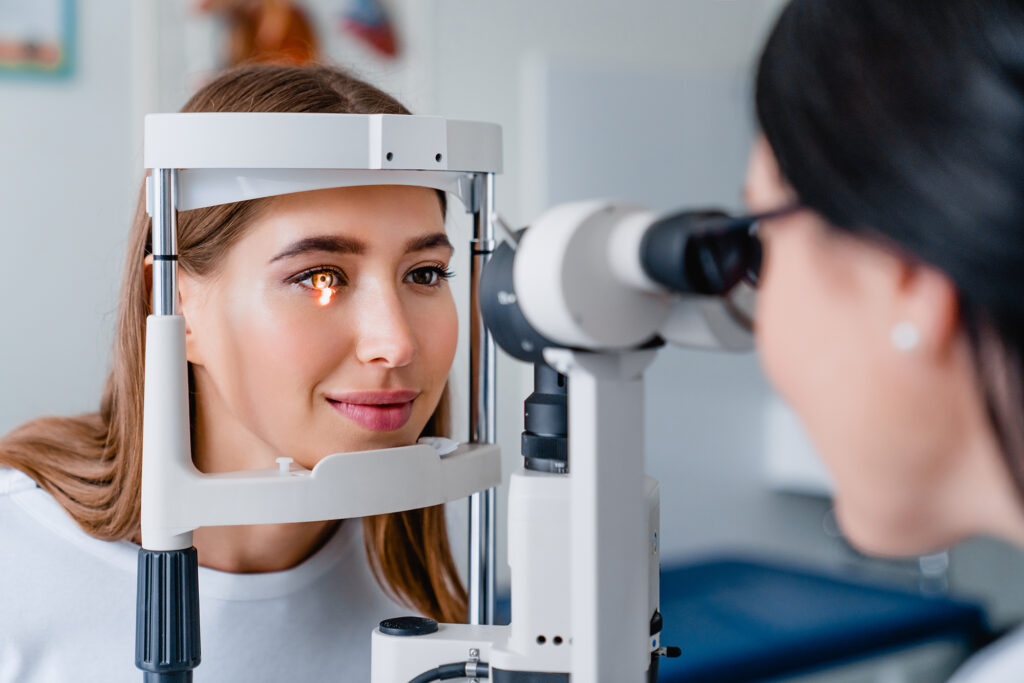Table of Contents
The Center for Retina and Macular Disease specializes in the diagnosis, treatment, and management of complex eye conditions affecting the retina and macula. These conditions can significantly impact your vision, and early detection and treatment are crucial for preventing permanent vision loss. The center offers cutting-edge treatment options and individualized care for patients suffering from a variety of retinal and macular diseases, ensuring the best possible outcomes for preserving and improving vision.
What is the Retina and Macula?
The retina is the light-sensitive tissue located at the back of the eye that plays a critical role in vision. It converts light into neural signals, which are then sent to the brain for processing. The macula is the central part of the retina and is responsible for sharp, detailed vision necessary for tasks like reading, driving, and recognizing faces.
When diseases affect the retina or macula, they can lead to vision impairment or blindness. Common conditions treated by the Center for Retina and Macular Disease include age-related macular degeneration (AMD), diabetic retinopathy, retinal detachment, macular holes, and other retinal disorders.
Common Retinal and Macular Diseases
1. Age-Related Macular Degeneration (AMD)
AMD is one of the most common causes of vision loss in older adults. It affects the macula, leading to blurred central vision and, in some cases, complete loss of central vision. There are two types of AMD: dry and wet. The wet form is more severe and can lead to rapid vision loss if left untreated.
2. Diabetic Retinopathy
Diabetic retinopathy is a complication of diabetes that affects the blood vessels in the retina. It can lead to vision loss if not properly managed. Early detection and treatment can help control the progression of the disease.
3. Retinal Detachment
Retinal detachment occurs when the retina separates from the underlying tissue, leading to vision loss. This is a medical emergency, and prompt treatment is necessary to reattach the retina and restore vision.
4. Macular Hole
A macular hole is a small break in the macula, causing blurred or distorted vision. While the exact cause is not always known, it is often associated with aging or trauma. Treatment typically involves surgery to repair the hole and restore vision.
5. Epiretinal Membrane
Also known as macular pucker, this condition occurs when a thin layer of scar tissue forms on the surface of the retina. It can lead to distorted vision and requires surgical intervention to remove the membrane and improve vision.
Services Offered by the Center for Retina and Macular Disease
1. Comprehensive Eye Exams
The center provides thorough eye exams to detect and diagnose retinal and macular conditions. Advanced diagnostic tools, such as optical coherence tomography (OCT) and fluorescein angiography, are used to obtain detailed images of the retina and macula, allowing for accurate diagnosis and treatment planning.
2. Medical and Surgical Treatments
The Center for Retina and Macular Disease offers both medical and surgical treatments tailored to each patient’s specific condition. This includes the administration of intravitreal injections, laser therapy, and advanced surgical procedures for conditions like retinal detachment and macular holes.
3. Intravitreal Injections
For conditions like wet AMD and diabetic retinopathy, intravitreal injections are commonly used to deliver medications directly into the eye. These injections help reduce abnormal blood vessel growth, control inflammation, and prevent further vision loss.
4. Laser Therapy
Laser therapy is used to treat conditions like diabetic retinopathy and retinal tears. It works by sealing leaking blood vessels or reattaching the retina to its underlying tissue. Laser therapy can help stabilize vision and prevent further damage.
5. Vitrectomy
Vitrectomy is a surgical procedure used to treat conditions like retinal detachment, macular holes, and epiretinal membranes. The surgery involves removing the vitreous gel from the eye and replacing it with a gas bubble or solution to help the retina heal properly.
6. Ongoing Monitoring and Management
Retinal and macular diseases often require long-term management and follow-up care to prevent progression and preserve vision. The center provides continuous monitoring and adjustment of treatment plans to ensure the best outcomes for each patient.
Why Choose the Center for Retina and Macular Disease?
1. Specialized Expertise
The Center for Retina and Macular Disease is staffed by highly trained ophthalmologists and retinal specialists who have extensive experience in diagnosing and treating complex retinal and macular conditions. Their specialized knowledge allows them to provide the most advanced and effective care available.
2. Cutting-Edge Technology
The center uses state-of-the-art diagnostic and treatment technologies, such as high-resolution imaging and minimally invasive surgical techniques, to ensure the best possible outcomes for patients. These technologies allow for early detection, precise diagnosis, and targeted treatments.
3. Personalized Care
Each patient receives a personalized treatment plan based on their unique needs and condition. The center’s approach to care is centered on improving the quality of life for patients by preserving and restoring vision.
4. Commitment to Patient Education
The center is dedicated to ensuring that patients fully understand their condition and treatment options. Education and support are provided to help patients manage their disease, make informed decisions, and follow through with necessary treatments and lifestyle changes.
5. Compassionate and Comprehensive Care
The team at the Center for Retina and Macular Disease understands that vision loss can be life-changing, and they are committed to providing compassionate care throughout every stage of treatment. They work closely with patients to provide emotional support as well as medical care.
Conclusion
The Center for Retina and Macular Disease offers expert care for individuals facing complex eye conditions that affect their vision. By combining specialized knowledge, advanced technology, and personalized treatment plans, the center provides hope and solutions for preserving and restoring sight. For those dealing with retinal or macular diseases, seeking care from a dedicated and skilled team can make all the difference in maintaining their vision and quality of life.
4o






